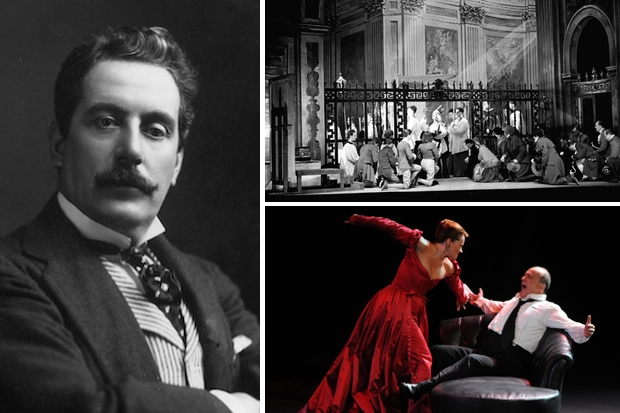During my opera-going lifetime the most sensational change in the repertoire has, of course, been the immense expansion of the baroque repertoire, with Monteverdi, Rameau and above all Handel being not only revived but also seen now as mainstays in most opera houses. To think that only 50 years ago it was regarded as daring for Glyndebourne to mount L’incoronazione di Poppea, even in Raymond Leppard’s abbreviated and sumptuous version, which has been most unfairly denigrated in recent years.
Yet just as remarkable, though hardly ever remarked on, has been the instatement of Puccini (who never needed reviving, since after initial scandals and flops he has always been more or less responsible for opera houses sometimes being in the black). But he was routinely thought of by opera-goers whose primary affections were for Mozart, Verdi and Wagner as second-rate, depending for his reputation on sex, sadism and sentimentality, a kind of operatic version of the Sun.
That view hasn’t entirely died, though it is much less often voiced now. For thoughtful opera-goers of my generation, Joseph Kerman’s book Opera as Drama, published in 1956, made an immense impression. Kerman, who died earlier this year, wrote a lot more about opera, but that is the book by which he will be remembered: his dismissal of Tosca as ‘that shabby little shocker’ is the single phrase that ensured his survival as an opera critic — not an occupation with a high degree of immortality. That phrase, often used even now, but more in derision of the man who coined it than of the work he applied it to, seemed to sum up the snootiness of academic criticism. Yet the rest of the book, which also dismantled Richard Strauss and indeed most works of even the composers whom he admired, is primarily a celebration of the small number of operas that Kerman felt did what opera should do: present drama in musical form, the point being that through the music we are given a genuinely dramatic experience, not a story on which to hang memorable tunes and B-movie-type thrills, which is what Kerman thought that Puccini offered.
Well, there’s no doubt about the memorable tunes. Puccini had one of the most striking melodic gifts in the history of music. What about the B-movie situations? That charge is altogether harder to deal with. I think the unease that even those of us who love Puccini sometimes feel is due to the sheer enjoyableness of his music, the lack of demands it makes on us. This is a tricky point to get across, but certain music seems to be at some distance from us, however warmly we feel about it: Stravinsky, almost always, is a prime case. Other music seems to be bent on coming to get us, and Puccini may be the arch-case of this, though some, even many, people feel that way about Wagner.
More distinctions need to be made, though I haven’t the space to make most of them here. Compare the scene in Tosca in which Tosca gets hold of the fruit-knife and drives it into Scarpia’s breast (or, in one production I saw, much lower down); and that in Fidelio in which Leonore draws the pistol on Pizarro. Both are doing it to prevent the death of their beloved, and evidently the term ‘melodramatic’ isn’t any use here, since that scene in Fidelio is melodramatic in both senses of the word. Yet I feel strongly that the Fidelio scene is not only exciting but also noble and exalting, while the Tosca scene is thrilling but nothing more. Puccini generates, in that masterly Act II, an excitement so great that we identify with Scarpia and with Tosca: the effect of Scarpia’s threats on Tosca is so electrifying that we want it to go on, and in that way the opera can be said to be dehumanising. In Fidelio, though of course we passionately want Leonore to save Florestan, we still aren’t led to low feelings of vindictiveness.
Or take a more obvious case: La traviata versus La bohème. The similarities are very close, but most regulars would unhesitatingly rate Verdi’s opera above Puccini’s. I wouldn’t — in fact, I think La bohème is a flawless masterpiece, while I recoil from the effort required to cope with Germont père’s set of values, and Violetta’s submission to them. That apart, I suppose people will argue that Mimi’s death is enjoyable in its way, while Violetta’s is upsetting, if only for the length of time that opera-lovers allow before bellowing their appreciation.
There is, even in Verdi, a kind of austerity which means that we retain, if we are serious, a perspective on the action. Puccini, by contrast, denies us any perspective, grabs us and seduces us, unmans us and allows us no alternative but to be lusciously moved or else to hold the whole thing at a distance and regard it with distaste — something that many people still feel, especially about Madama Butterfly, to my mind his greatest opera. I wish someone would help me to get clearer in this difficult but vital area.






Comments